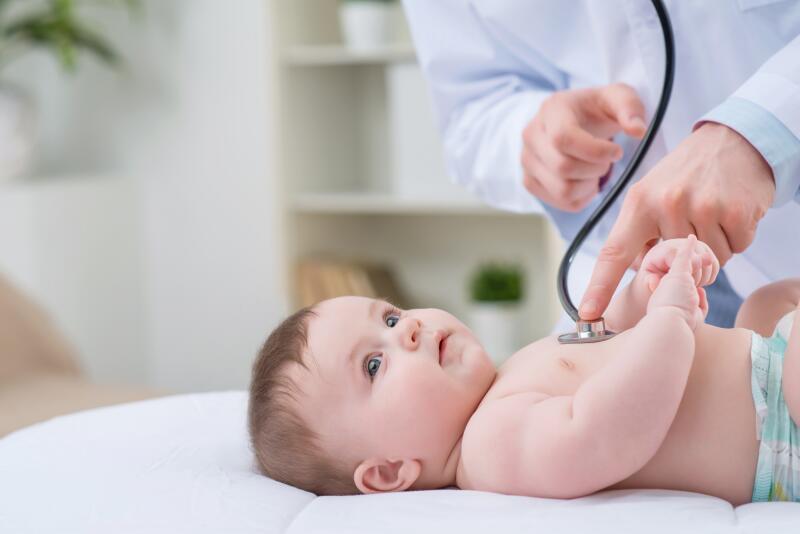-
Your concerns
Our articles to help you gain a better understanding
-
Our solutions
-
Ducray Dermatological laboratories
Our articles to help you gain a better understanding

When the first eczema plaques appear on the baby's body, parents often begin to panic.
Some wonder what it is and become frightened that it is something serious; others recognize eczema plaques and try to find out what caused them. They don't know whether they should wait or consult a physician. At that moment, parents sometimes feel very guilty even though they're trying their best!
Of course, the first recommendation is to consult a physician. Most often, this is the child's pediatrician or GP. Sometimes parents make an appointment with a dermatologist directly. The physician diagnoses eczema and reassures the parents. He explains what eczema is in a nutshell and how to care for it. An initial treatment is prescribed and usually includes two types of cream: the topical corticosteroid treats eczema plaques while the emollient fights against skin dryness.
If the baby has another flare-up, often almost identical to the first, the parents must be capable of restarting the initially prescribed treatment without necessarily making another doctor's appointment. Parents must understand that eczema in children is a chronic disease which evolves cyclically, alternating between flare-ups and remission. Between visits to the doctor, parents can keep a calendar of flare-ups, count the number of tubes used so that the doctor will have an idea of what happens at home. These different measurements improve medical follow-up and make parents true agents in managing their child's disease.
On the other hand, if the lesions change in appearance or persist despite implementing treatment, if the baby suffers from general symptoms such as fever, parents must consult their doctor because it can be a case of superinfected eczema or another skin disease which requires using other treatments.
Skin prone to atopic eczema, contact eczema, chronic eczema and/or, eyelid eczema
NEWSLETTER
Dermatological expertise
To better understand your skin and hair, discover our exclusive content and innovative care products designed to improve your quality of life..